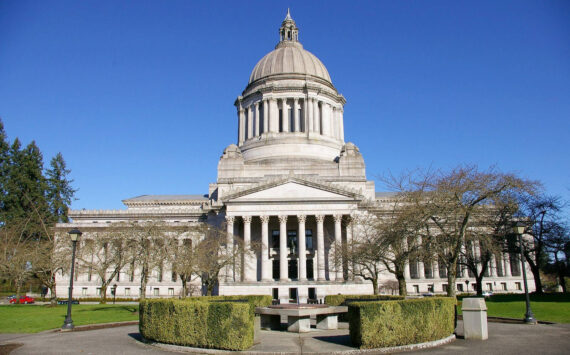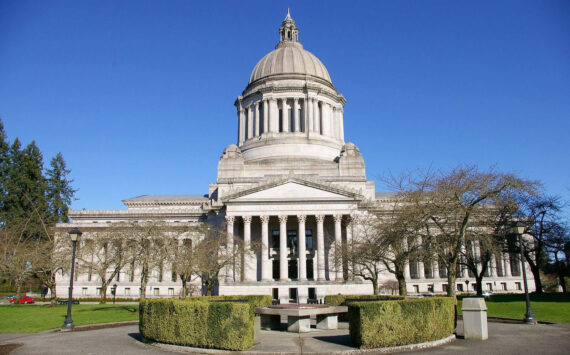Like most centenarians, Metro Parks Tacoma has its aches and pains.
Case in point: Jefferson Park. The greenspace has provided walking/jogging trails, tennis courts, baseball and softball fields, a community center, and a wading pool to city residents since it opened in 1924. Today, the tennis courts are outdated, the pool is cracked, and the backstops need paint.
Other parks in the city are equally in need of repairs, according to Metro Parks officials: Jane Clark Park needs pool repairs similar to those at Jefferson; the picnic shelter at Cloverdale Park needs renovations; and Dash Point Park needs a new restroom.
Improvements to city parks make sense, particularly considering the age and scope of the department. Metro Parks was created in 1907 as a municipal corporation to manage park, recreation and zoological services and facilities for the citizens of Tacoma, Dash Point and Browns Point. Governed by an elected five-member board of park commissioners, Metro Parks maintains and cares for more than 100 parks and open spaces in the Tacoma area.
Earlier this year, the department identified $150 million in costs related to deferred maintenance of the parks. A Citizen Bond Advisory Committee was formed, and last summer the Board of Park Commissioners voted unanimously to place a $60 million bond measure — Proposition 1 — before voters at the Nov. 2 election.
It’s been almost 20 years since a capital bond measure brought significant dollars into the park system, says Lois Stark, Chief Planner at Metro Parks. Stark is referring to a $25 million bond measure passed by voters in 1986. That money funded park improvement projects throughout the neighborhood.
If passed, Proposition 1 would fund the following Metro Parks initiatives:
*$35 million in improvements to neighborhood parks, playgrounds, community centers and athletic complexes throughout Tacoma (restrooms, safety and security, playground equipment, spray pools, pathways, lighting and landscaping);
*$17.5 million for Point Defiance Park and Ruston Way improvements (more waterfront access, protection of historical buildings within Point Defiance Park and more);
*$7.5 million to refinance existing debt (freeing up funds for programs and services).
This years proposition is interesting in light of the departments bumpy relationship with voters. In February 1996, citizens voted against a $39.7 million parks bond proposal. Three months later, citizens rejected a similar proposal seeking $37.5 million. Also, confusion exists between funds for Metro Parks and funds for Point Defiance Zoo. Voters are asking, Didnt we approve a $35 million bond measure for parks in 1999? Yes, say park officials, but those funds were restricted to zoo projects only, not metropolitan parks.
I wouldn’t compare the previous bond issues with this proposal, says Bill Stauffacher, a campaign consultant for the Neighbors for Parks, a campaign supporting the proposition. The prospects of passing this bond are good because Metro Parks created a proposal that reflects what the public wants, not what government says people need. Metro Parks spent the past 18 months listening to taxpayers and, as a result, created a proposal that takes care of the parks for an affordable price.
Nancy Davis, the Governmental & Community Relations Liaison at Metro Parks, agrees. We have solicited the publics comments and incorporated its feedback throughout this process, she says.
Still, one factor is stacked against this proposition: a voters reluctance to approve a tax increase during a tough economy.
Opponents of Proposition 1 cite existing city, county and state tax burdens. Washington state has the ninth highest per capita tax rate in America, Pierce County has the highest sales tax in Washington state, and Tacomas property tax rate is the highest in Washington state. Opponents also argue that voters permanently increased the county sales tax in September 2000 to raise over $90 million over the next decade for parks.
Metro Parks, however, argues that the tax burden is minimal: the owner of a home valued at $150,000 would pay $18 per year.
If voters do not approve the proposition, Metro Parks will have to re-evaluate its 2005-2006 budget. Well have to determine the services we can afford to offer and the facilities we can maintain, says Jean Jackman, a marketing and public relations manager at Metro Parks. Cuts would likely be made, and we would rely heavily on community volunteers to help keep parks open and maintained.
Stauffacher, the Neighbors for Parks campaign consultant, remains optimistic. Anytime a tax increase is before voters, he says, taxpayers consider the personal pocketbook impact weighed against the value of public investment. I believe a majority of people will say this is a very fair price to pay to make Tacoma’s parks better.







